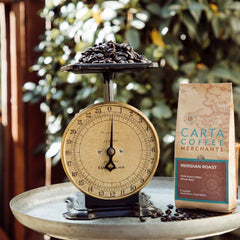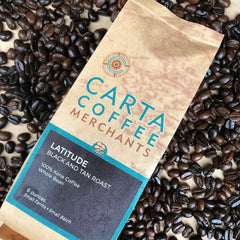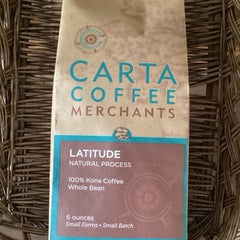Posted on

Coffee has been found to have many health benefits, but could the coffee you drink in the morning be causing you to gain weight?
The short answer to that question isn’t so cut and dry, it can depend on a few different things.
There are a lot of factors that can cause weight gain, but what you put into your body, and how much of it, is one of the main reasons why people gain weight or have a hard time losing weight. Exercise alone may help you to feel healthier, but the calories you’re consuming in a day are what really determines if you gain or lose weight.
Calories in Coffee
Depending on the type of coffee you drink, and what sort of additives you use, will determine how many calories are in a single cup of coffee.
Black coffee, made from pouring water over ground coffee beans, is going to contain only 1-2 calories per cup. This is coffee in its purest form with no added sugars, creamers, or flavoring. Compare that to a drink like the Starbucks Café Mocha, that comes in at around 360 calories, and you’ll see that adding other ingredients to the coffee is what causes it to lose its health benefits and possibly contribute to weight gain.
Counting your calories and making sure you’re not overeating throughout the day is the best way to help control your weight.
Drinking a couple cups of black coffee in the morning is not going to necessarily contribute to weight gain but swinging through the Starbucks drive-thru each morning to get your grande mocha latte with extra whip cream is going to add up quickly.
The average adult should consume between 1800-2200 calories per day to maintain weight, so starting your day with a single beverage that clocks in at 360 calories is probably not the best way to help with losing weight. Not to mention most of those calories come from sugars and sweeteners, which aren’t healthy.
A more balanced breakfast in the morning will help get your energy levels up while keeping you healthy and less hungry throughout the morning.
That being said, the calories in coffee aren’t the only thing that could contribute to weight gain if you’re overdoing it…
Caffeine and Weight Gain
Coffee often time contains a large amount of caffeine which can cause health issues and impact your attempt at losing weight.
An 8-oz. cup of drip coffee contains about 133 mg of caffeine, while something like a 16-oz latte contains around 154 mg. When you compare that to other caffeinated beverages like Coke/Soda, which has around 34 mg of caffeine, or a cup of tea which can range from 40-60 mg of caffeine, you can see that coffee contains almost 3-4x as much caffeine.
Caffeine is metabolized by everyone differently, so a large amount of caffeine may affect you differently than it does someone who regularly consumes the same amount. Caffeine can cause disruptions in your body’s insulin sensitivity and blood glucose levels which can affect your ability to lose weight.
Too much caffeine can cause your insulin levels to stay elevated which can lead to insulin resistance, which can make it harder to lose weight. And, as we said, this can affect people in different ways. One person may notice issues with just two cups of coffee per day, while another person may not notice anything while drinking 5-7 cups a day. It all depends on your metabolism and how fast your body can process the caffeine from the coffee.
So while drinking a conservative amount of coffee, without additives, will most likely not cause you to gain weight on its own, you need to be careful about what you’re consuming.
Sugars, creamers, and flavor additives are going to dramatically increase the amount of calories found in your coffee drink, which could then in turn cause you to go over the recommended daily calorie intake for an adult. And whenever you consume more calories than your body needs, you begin to gain weight.
We would suggest sticking with 100% Kona coffee made at home using as little sugar or cream as possible if you’re looking to maintain your weight or lose weight. The key to maintaining a healthy weight is to consume in moderation. As long as you keep track of what you’re eating in a day you can balance out where those calories are coming from.





